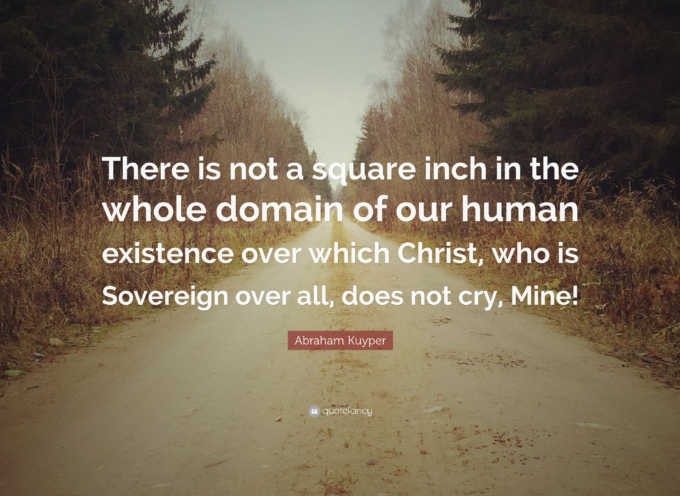Here are six sets of resources for pastors, professors, and students who wish to build their “theology and culture” library. I’ve included a variety of resources, some of which represent views I oppose. However, the majority of the resources fit my preferred “Reformational” model.
1. Differing Visions for Christianity and Culture
Richard Niebuhr’s Christ and Culture is a minor classic in 20th century theology; it provides a historical classification of typical Christian views of the relationship between “Christ” and culture. In combination with Niebuhr’s book, you’ll want to read D. A. Carson’s Christ and Culture Revisited and Craig Carter’s Rethinking Christ and Culture. Carson critiques Niebuhr’s theological framework and argues for a more cruciform understanding of the Christian’s place in culture. Carter also critiques Niebuhr’s theological framework as well as Niebuhr’s privileging of Christendom in the conception of his categories. Finally, to cover all your bases, you won’t want to miss Jamie Smith’s brief article critiquing Carson.
2. Contextualizing Theology
Stephen Bevans’ Models of Contextual Theology is a very helpful survey of typical models of contextualization. After digesting Bevans’ survey, I suggest “chasing” it with David Clark’s “Theology in Cultural Context,” which is the third chapter of his theological method text, To Know and Love God. I like Clark’s “dialogical” model for contextualization because it is premised upon biblical authority in theology and critical realism in epistemology. I have set forth a very similar view in the first chapter of A Theology for the Church.
3. Making Culture and Changing Culture
Andy Crouch’s Culture Making is an engaging and persuasive treatise on the Christian community’s calling to “make culture” rather than merely “engage the culture.” James Davison Hunter’s To Change the World argues that Christian strategies for “changing the world” are doomed from the start, because they fail to recognize the role of the cultural elite in fostering such change. I pair these two books not only because they cover some of the same terrain, but because Hunter criticizes Crouch’s book. After reading the two books, including Hunter’s criticisms of Crouch, you’ll want to read Crouch’s two fine replies here and here.
4. Employing the Head and the Heart
Abraham Kuyper’s Lectures on Calvinism is a slim but powerful volume arguing that Reformational Christianity provides a sturdier worldview than modernism, and showing some ways that Christian convictions should shape our approach to various spheres of culture: religion, politics, science, and art. Jamie Smith’s Desiring the Kingdom goes beyond Kuyper’s worldview approach to show how and why human beings are “lovers” and not merely “thinkers.” Although Smith’s book criticizes the shape of certain Kuyperian approaches and is best understood as an insider’s attempt to help make the Kuyperian tradition healthier.
5. Communicating a Reformational Theology of Culture
Al Wolters’ Creation Regained is an extraordinarily lucid conceptualization of the Reformational worldview; it can be employed easily for a preacher or professor who wishes to provide the undergirding for a Reformational understanding of culture. Michael Wittmer’s Heaven is a Place on Earth is very similar to Wolter’s text, except that it is a trade book that is written for an even broader audience.
6. Making It Missional
Lesslie Newbigin’s Foolishness to the Greeks is a call for Christians to bring the gospel into a missionary encounter with the West, just as they have sought to do in the East and the South. Michael Goheen’s A Light to the Nations is a sophisticated (but lucid and very accessible) missional ecclesiology that starts with Israel rather than with the New Testament. It combines the disciplines of biblical theology, systematic theology, and missiology. Tim Keller’s Center Church is a comprehensive and accessible text for the pastor or church planter who wishes to bring his church into a missionary encounter with Western culture.
Subscribe
Never miss a post! Have all new posts delivered straight to your inbox.







